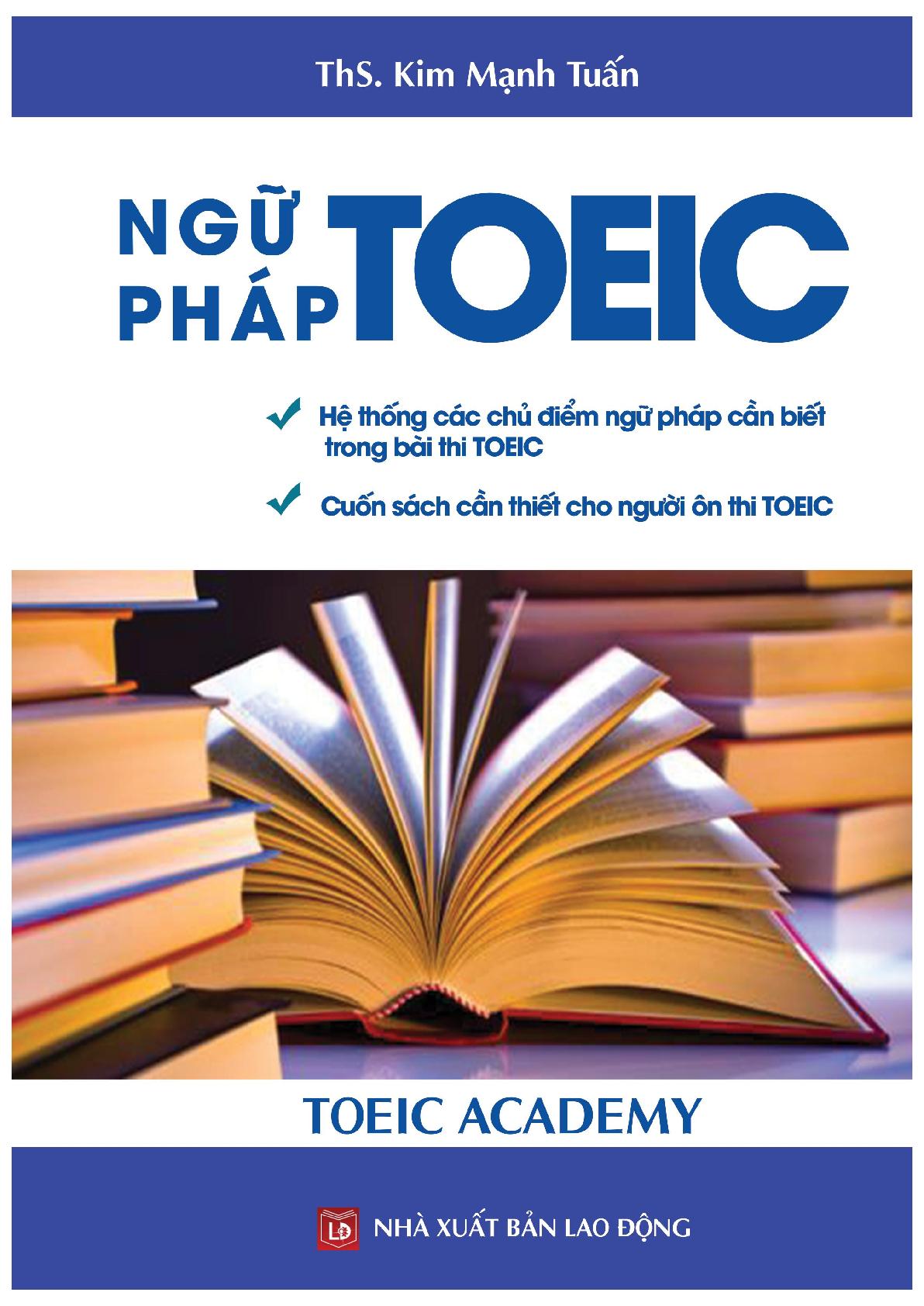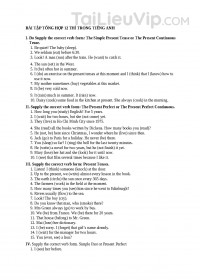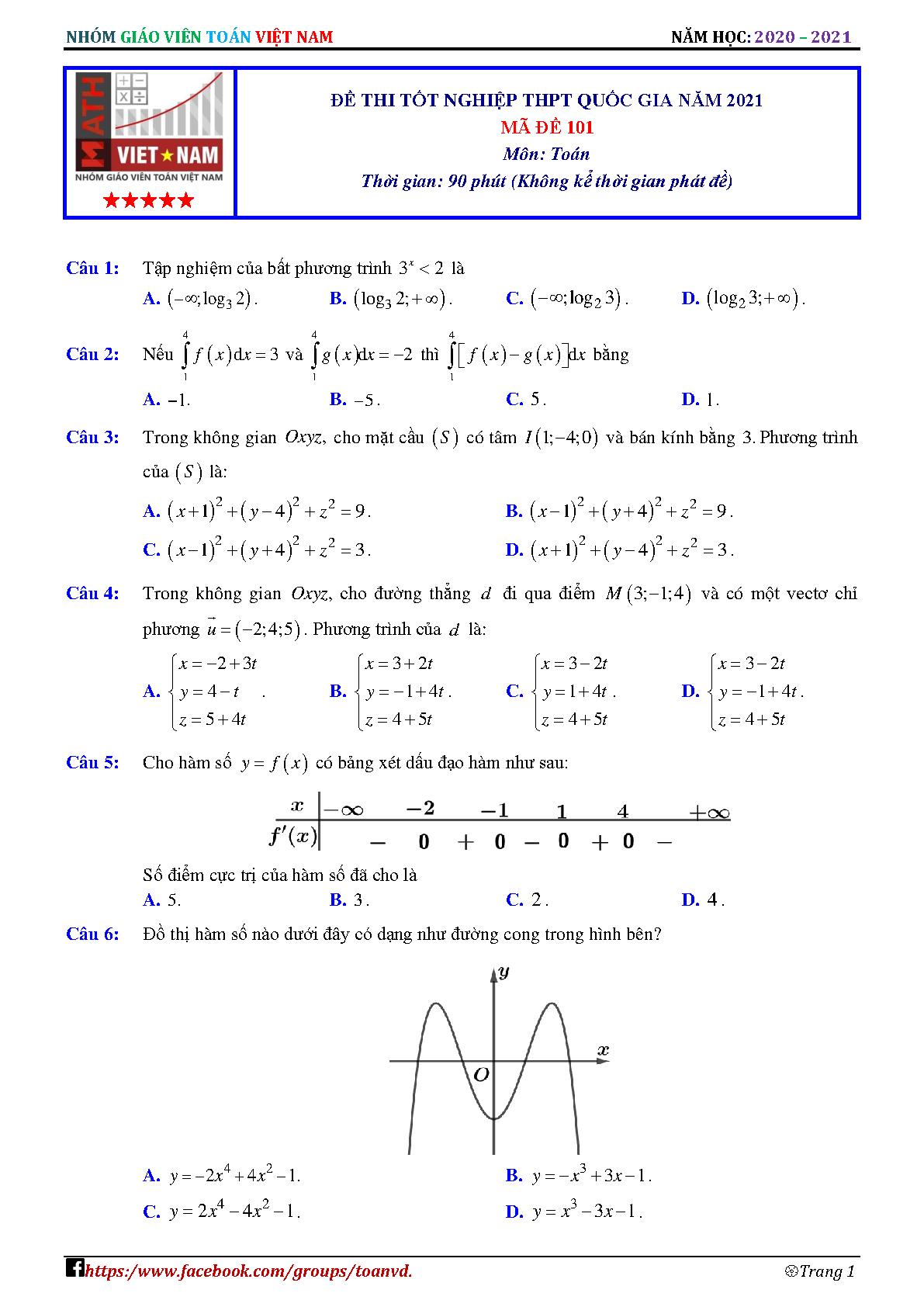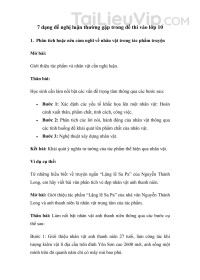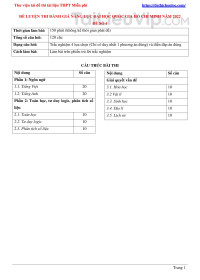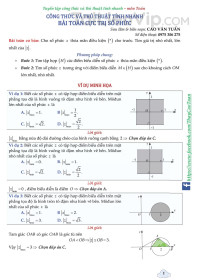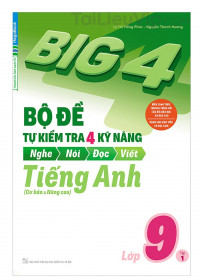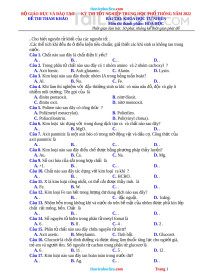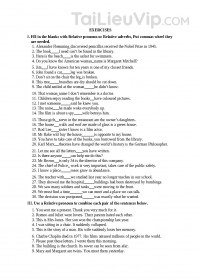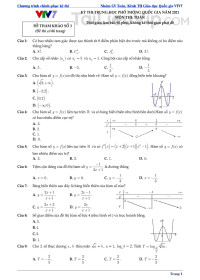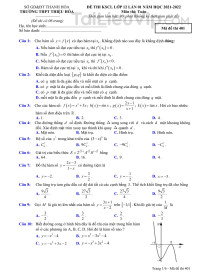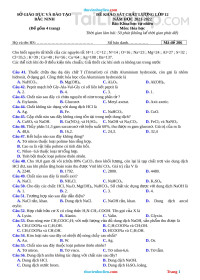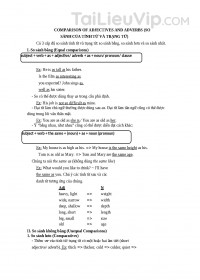LÝ THUYẾT VÀ BÀI TẬP VỀ ĐẠI TỪ (PRONOUNS) CHÍNH XÁC NHẤT
1,438 14

Tải về máy để xem đầy đủ hơn, bản xem trước là bản PDF
Tags: #PRONOUNS#BÀI TẬP VỀ ĐẠI TỪ#ĐẠI TỪ TRONG TIẾNG ANH
Mô tả chi tiết
Đại từ nhân xưng (pepsonal pronouns) được chia làm 2 loại:
1.Đại từ làm chủ ngữ (subjective pronouns)
SingularPlural
Ngôi thứ I1st personIWe
Ngôi thứ II2nd personYouYou
Ngôi thứ III3rd personHe/She/ItThey
1.Đại từ làm chủ ngữ (subjective pronouns)
SingularPlural
Ngôi thứ I1st personIWe
Ngôi thứ II2nd personYouYou
Ngôi thứ III3rd personHe/She/ItThey

Nội dung
PRONOUNS (ĐẠI TỪ)Đại từ (pronouns) là từ dùng để thay thế cho danh từ. Đại từ có thể được chia thànhnhững loại sauđây:I. Đại từ nhân xưng (pepsonal pronouns) được chia làm 2 loại:1. Đại từ làm chủ ngữ (subjective pronouns)Singular PluralNgôi thứ I 1st person I WeNgôi thứ II 2nd person You YouNgôi thứ III 3rd person He/She/It They Ex : I am going to the store.We would like to leave now. It was she who called you.2. Đại từ làm tân ngữ (objective pronouns)I me He him We us They them You you She her It itEx : They called us on the telephone. The teacher gave her a bad grade.The policeman was looking for him .♦ Cách dùng của it (The use of it )- Đại từ it được dùng cho những sự vật cụ thể, ý niệm trừu tượng hoặc dùng cho con vật.Ex : I tried the door. It was locked.He promised his help if I needed it .- Đại từ it dùng để nhận danh một người còn chưa biết là ai. Và khi nhận ra rồi, thì he hay she được sử dụng tùy theo đó là nam hay nữ.Ex : There was a knock at the door. I thought it was the postman. He usually comes at that time.- Đại từ it được dùng để nói về một ý tưởng được nói đến trong một nhóm từ, một mệnh đề, một câuở trước.Ex : He tried to break the clock. It was not easy either.The music had stopped. He didn’t notice it . - Đại từ it được dùng như một chủ ngữ giả (formal subject) khi nói về điều kiện thời tiết, thời gian,khoảng cách, đo lường.Ex : It is raining heavily.It is half past three now.It is six miles to the nearest hospital from here. It is five feet deep.- It như một chủ ngữ giả (formal subject) còn được tìm thấy trong những câu mà một từ được bổ nghĩa bởi một cụm từ hoặc một mệnh đề sau nó.Ex : It is stupid to fall asleep like that .It is no use hoping he’ll ever change his mind . It was a surprise that he had come back so soon .- Đại từ it còn được sử dụng như một tân ngữ giả (formal object), theo sau nó là một tính từ hoặcdanh từ được bổ nghĩa bởi cụm từ hay mệnh đề.Ex : I found it difficult to explain this to him.He thought it no use going over the subject again. She thought it odd that they had left him no message.- Đại từ it được sử dụng để nhấn mạnh cho một từ hoặc cụm từ trong câu. Ex : It was my question that made him angry.- Đại từ it đôi khi được sử dụng trong các đặc ngữ có tính chất thân mật.Ex : Hang it all, we can’t wait all day for him.(Rõ bực, ta không thể suốt ngày đợi nó được.) When I see him, I’llhave it out with him. (Gặp nó, tôi sẽ nói cho nó vỡ lẽ ra mới được.)If the teacher sees you doing that, you’ll catch it .(Thầy mà thấy mày làm vậy, mày liệu hồn.)II. Đại từ sở hữu (possessive pronouns) là hình thức sở hữu của đại từ nhân xưng. Đại từ sở hữukhông đứng trước danh từ, nó thay thế cho tính từ sở hữu + danh từ (đã được nói đến).I mine : cái của tôi You yours: cái của anh/ các anhHe his : cái của anh ấy She her : cái của cô ấyWe ours : cái của chúng tôi It its : cái của nóThey theirs : cái của họEx : She put her arm through mine . (= my arm)They are not my gloves; I thought they were yours . (= your gloves)Đôi khi ta có thể thấy đại từ sở hữu đứng sau giới từ of . Sự kết hợp này được gọilà sở hữu kép. Ex : He is a friend of mine .It happened through no fault of his .III. Đại từ phản thân (reflexive pronouns) được sử dụng khi chủ ngữ vừa cho vừa nhận hành động. Hay nói cách khác chủ ngữ và tân ngữ của câu cùng chỉ một ngườiI myself You yourselfHe himself She herselfIt itself We ourselvesYou yourselves They themselves♦ Quan sát 2 ví dụ sau:Ex : John bought him a new can (him = another person) John bought himself a new car. (himself = John)- Đại từ phản thân có chức năng như một tân ngữ trong câu. Ex : She served herself in the cafeteria.I’m sure you both remember the day when you talked about yourselves and the past. He sent himself the letter.- Đại từ phản thân còn có thể được sử dụng để nhấn mạnh. Điều này có nghĩa là chính chủ ngữ thực hiện hành động. Trong trường hợp này nó thường đứng ngay sau chủ ngữ.Ex : You yourself told them the story.The students themselves decorated the room.♦ By + đại từ phản thân = alone (một mình)Ex : John washed the dishes by himself =John washed the dishes alone.IV. Đại từ chỉ định (demonstrative pronouns) gồm có:this (người này, cái này) these (các người này,các cái này) that (người kia, cái kia) those (các người kia, các cái kia) such (như thế này, như thế kia)same (như nhau)- Đại từ this/ these để chỉ những gì ở gần về không gian, thời gian hoặc khái niệm; that/ those để chỉ những gì ở xa hơn.Ex : Do you know these people? This is Harry and this is Jake. “Look at this ” he said and showed me his tie.Do you see those houses in the distance? That ’s where we are going.- Trong một số trường hợp, this/ these nói đến những gì đi theo sau; that/ those nói về những gì đãnói ở trước.Ex : After I’ve listened to you very attentively. I’ll tell you this - I don’t think you should trust the man.I’m glad to know that you have an interest in sport. That means we have two things in common.- Đại từ this/ these và that/ those thường được dùng với danh từ chỉ thời gian. Ex : Father had to go to Chicago this morning.I remember that he woke up early that morning.- Đại từ that/ those có thể được sử dụng thay cho một danh từ đã được nói đến.Ex : He hung his daughter’s portrait beside that of his wife’s.These poems are not so good as those written by you last year.- Đại từ those được theo sau bởi một mệnh đề quan hệ hoặc một cụm phân từ để nói về người.Ex : Those (= people) injured in the accident were taken to hospital.Even those who do not like his pictures are not indifferent to him.- Đại từ chỉ định such có nghĩa “như thế này, như thế kia”Ex : If I were you, I would not say such a thing about him.He was a silent, ambitious man. Such men usually succeed.- Such thỉnh thoảng có thể được thấy trong một cụm từ.Ex : They export a lot of fruits, such as oranges, lemons, etc.- Đại từ chỉ định same luôn luôn đứng sau mạo từ xác định.Ex : I found her just the same as before.V. Đại từ bất định (indefinite pronouns) gồm các nhóm chính sau:1.Some => somebody, someone (ai đó), something (cái gì đó)- Được dùng trong câu khẳng định, và đi với động từ số ít. Ex : There’s somebody at the door.I’ve got something to tell you.- Được dùng trong câu hỏi khi câu trả lời sẽ là “yes”.Ex : What’s wrong with you? Have you got something inyour eyes? (I see something in your eyes).- Được dùng trong lời mời hay câu yêu cầu.Ex : Would you like something to drink?2.Any => anybody, anyone (bất cứ ai), anything (bất cứ cái gì)- Được dùng trong câu phủ định và nghi vấn và đi với động từ số ít. Ex : Is there anybody in the room?I’m very tired now. I don’t want to eat anything .- Được dùng trong mệnh đề IF.Ex : If anyone has any questions, I’ll be pleased to answer them.3.No => nobody, no one, nothing (không ai không cái gì ...)- Được dùng với nghĩa phủ định, có thể đứng đầu câu hoặc đứng một mình. Ex : “What did you say?” “ Nothing ”Nobody (No one) came to visit me when I was in hospital.- Nothing, nobody,... = not + anything, anybodyEx : She did n’t tell anybody about her plans. (= She told nobody ...)- Được dùng với động từ ở hình thức số ít.Ex : The house is empty. There ’s nobody living there.- Khi dùng nothing, nobody,... thì không dùng động từ phủ định.Ex : He said nothing .Nobody tells me anything.- Nobody, no one được dùng với dạng số nhiều của đại từ và tính từ sở hữu (they, them, their,...)Ex : Nobody phoned, did they ?No one in the class did thei r homework.The party was a disaster. Nobody enjoyed themselves .VI. Đại từ quan hệ (relative pronouns)Đại từ quan hệ who, whom, which, whose, that,... được dùng để nối mệnh đề chính với mệnh đề phụ.(Xem phần Relative Clause trang 83)VII. Từ xác định đứng trước (predeterminers)Có chức năng làm đại từ (pronouns). Từ xác định có thể dùng trước giới từ of và mộtdanh từ số ít hoặc số nhiều, đếm được hoặc không đếm được. Động từ theo sau các từ xácđịnh đứng trước có thể ở hình thức số ít hoặc số nhiều, tùy loại.All (tất cả), some (vài), a few (một vài), several ( vài), both (cả hai), each (mỗi), either (một trong hai) , neither (không có ai/ gì trong hai), none (không có ai/gì trong nhiều), little(ít) , much (nhiều),...1. Some of/ most of/ none of... + the, this, that, these, those, my, his, Ann's... có thể đi với động từ số ít hoặc số nhiều tùy thuộc vào danh từ sau nó.Ex : Some of the people I work with are very friendly.None of this money is mine.2. Có thể dùng some of/ none of... + us/you/ them.Ex : How many of these people do you know? None of them/ A few of them .3. Có thể dùng some, most, many, little,... không có danhtừ theo sau. Ex : Some cars have four doors and some have two.4. Khi dùng both, neither, either + of cần phải thêm the/these/those/my/his/ Tom's.,.Ex : Both of these restaurants are very good.I haven’t been to either of those restaurants .Không cần dùng of sau both .Ex : Both my parents are from London.5. Có thể dùng both of/ neither of/ either of+ us, you, them.Ex : Both of us were very tired.6. Sau neither of động từ có thể ở hình thức số ít hoặc số nhiều.Ex : Neither of the children wants/ want to go to bed.7. Both, neither, either có thể được dùng một mình.Ex : I couldn’t decide which of the two shirts to buy. I like both .Is your friend British or American? ~ Neither . She’s Australian. Do you want tea or coffee? ~ Either . I don’t mind.8. Either, neither, both chỉ hai sự việc và any, none, all chỉ hơn hai sự việc.Ex : We tried two hotels. Neither of them had any rooms./ Both of them were full. We tried a lot of hotels. None of them had any rooms./ All of them were full.9. Không dùng all để chỉ everybody, everyone.Ex : Everybody enjoyed the party. (NOT All enjoyed the party .)10. Everyone, everybody (mọi người), everything (mọi thứ) được dùng với động từ ở hình thức số ít. Ex : Everybody has arrived.11. All dùng với cả danh từ số ít hoặc số nhiều. Động từ ở hình thức số ít hoặc số nhiều tùy thuộc vào danh từ trước nó.Ex : All of the women in this factory are working.All of the money has been spent.12. Little, much chỉ được dùng với danh từ không đếm được (số ít). Ex : Much of the time in my life was in the countryside.EXERCISESI. Choose the correct words.1. I go to school with (he/ him) everyday.2. I see (she/ her/ herself) at the Union every Friday.3. She speaks to (we/ us/ ourselves) every morning.4. Isn’t (she/ her) a nice person?5. (He/ Him) is going to New York on vacation.6. John and (she/ her) gave the money to the boy.7. Your record is scratched and (mine/ it) is, too.8. John bought (himself/ herself/ hisself) a new coat.9. (We/ Us) are going camping over the weekend.10. Mr Jones cut (him/ himself) shaving.11. The dog bit (hers/ her) on the leg.12. John (he/ himself) went to the meeting.13. Mary and (I/ me/ mine) would rather go to the movies.14. “Can I take another biscuit?” “Of course. Help (you/ yourself).”15. Could you lend me your ruler? (I/ Mine/ Me) has just been broken.16. This parcel is for George and (I/ me).17. Is that Mary over there? Yes, that’s (her/ she).18. John, you (yourself, yourselves) have to do it.19. To (us/ we), it seems like a good bargain.20. It was (he/ him) who called you.II. Fill in each blank with an appropriate reflexive pronoun and then identify its function in the sentence.1. I’ll do the job by .2. She stood admiring in front of the mirror.3. Look after !4. We gave a lot of trouble.5. It’s time you got a new coat.6. We hurt playing football.7. The students decorated the room.8. John bought these gifts.9. You can see the difference for .10. I washed .III. Complete the sentences with somebody, something, anybody, anything.1. I was too surprised to say .2. There’s at the door. Can you go and see who it is?3. Does mind if I open the window?4. I wasn’t feeling hungry, so I didn’t eat .5. You must be hungry. Would you like to eat?6. Quick, let’s go! There’s coming and I don’t want to see us.7. Sally was upset about and refused to talk to .8. This machine is very easy to use. can learn to use it in a very short time.9. I’m going out now. If phones when I’m out, can you tell them I’ll be back at 11:30?10. who saw the accident should contact the police.IV. Choose the correct words.1. She didn’t tell (nobody/ anybody) about her plans.2. The accident looked serious but fortunately (nobody/ anybody) was injured.3. The situation is uncertain. (Nothing/ Anything) could happen.4. “What’s in that box?” “Nothing/ Anything). It’s empty.5. I don’t know (nothing/ anything) about economics.V. Rewrite the sentences, using IT.1. To learn English is very interesting.2. The journey to Brighton from London takes only one hour by train.3. Some parts of King Lear are extremely difficult to understand.4. That he will fail is clear to everyone but himself.5. Finding our way home won’t be easy.6. My question itself made him angry.7. Meeting each other on this occasion is a good chance.8. Do you think that to explain to him what happened is difficult?9. People think that he is a famous doctor in this city.10. To fall asleep like that is stupid.VI. Put in of where necessary1. All cars have wheels.2. None this money is mine.3. Some people get angry very easily.4. Some the people I met at the party were very interesting.5. I have lived in London most my life.6. Many people watch too much TV.7. Are any those letters for me?8. Most days I get up before 7 o’clock.9. Jim thinks that all museums are boring.10. Some us dislike him.VII. Complete the sentences, using the words in brackets. Insert the, of the where necessary.1. I wasn’t well yesterday. I spent in bed. (most/ day)2. drive too fast, (many/ people)3. you took on holiday were very good, (some / photographs)4. learn more quickly than others, (some/ people)5. We’ve eaten we bought. There’s very little left. (most/ food)6. Have you spent you borrowed? (all/ money)7. Peter can’t stop talking. He talks (all/ time)8. We had a lazy holiday. We spent on the beach, (most/ time)9. George is easy to get on with like him. (most/ people)10. The exam was difficult. I could only answer . (half/ questions)VIII. Complete the sentences with neither, either, none, any .1. We tried a lot of hotels but of them had any rooms.2. I took two books with me on holiday but I didn’t read of them.3. I took five books with me on holiday but I didn’t read of them.4. There are a few shops at the end of the street but of them sell newspapers.5. You can phone me at time during the evening. I’m always at home.6. I can meet you as the 6th or 7th. Would of those days be convenient for you?7. John and I couldn’t get into the house because of us had a key.8. There were a few letters this morning but of them were for me.9. I was invited to two parties last week but I didn’t go to of them.10. Sarah and I play tennis together regularly but of us can play very well.
- Xem thêm -


